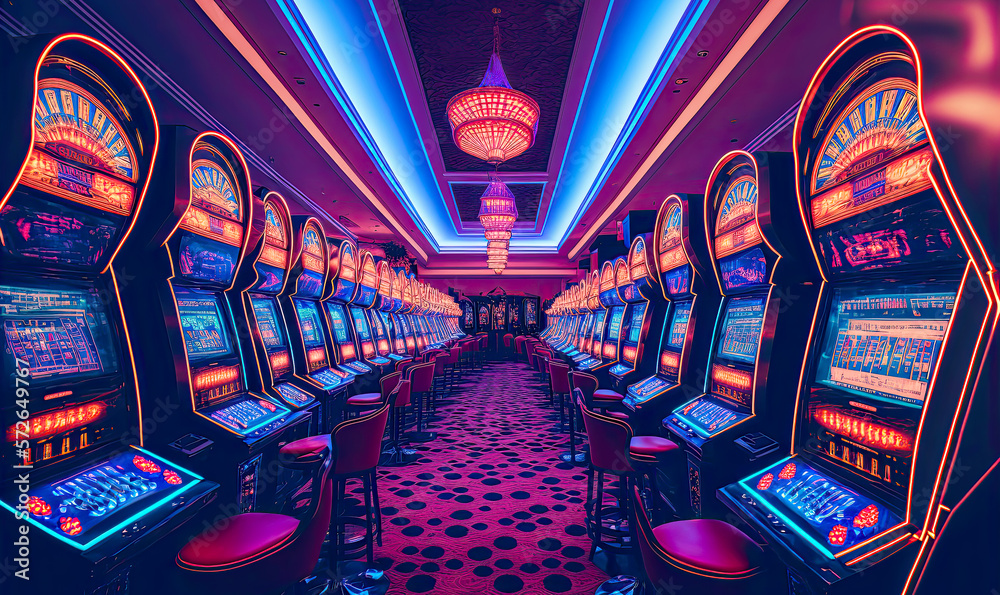Latest Updates
Featured Posts
Get in Touch
123 Innovation Street
Tech District, CA 94105
[email protected]
+1 (234) 567-890
The Mystery of Gambling Myths
In the world of gambling, where chance and strategy intersect, a unique tapestry of beliefs manifests—one that weaves together luck, fate, and the enigmatic nature of casino games. Casinos, bustling with excitement and anticipation, are not just venues for placing bets; they are also arenas where superstitions thrive. From the novice player to the seasoned gambler, these mysterious practices often shape how individuals approach the games they play, believing that their actions can influence the outcome in ways that go beyond mere probability.
When players gather around roulette wheels, blackjack tables, and slot machines, the atmosphere is thick with stories of lucky charms, rituals, and codified behavior that defy logic yet provide a sense of comfort. Whether it’s wearing a specific outfit, following a particular sequence of bets, or even avoiding certain numbers, the attachment to various superstitions reflects a deep-rooted desire to control the uncontrollable. This article delves into the captivating world of casino game superstitions, investigating the beliefs that simultaneously entertain and mystify those who dare to play.

Historical Roots of Superstitions
Casino activities have long been connected with an host of superstitions that trace to primitive cultures. The roots of these notions can be associated to humanity's fundamental desire to control the random outcomes related with chance and uncertainty. In early civilizations, games of uncertainty were often linked to ritualistic practices. Gamblers would seek aid or seek favor from gods, believing that their actions could affect the outcomes in their benefit. This groundwork laid the groundwork for the variety of superstitions that developed as betting evolved over time.
During the medieval age, gambling became a widespread hobby across European nations, and with it, a colorful tapestry of superstitions developed. Participants adopted numerous rituals and charms, believing they could change the consequences of games. The value of numbers, in particular, emerged to appear in superstitions around card games and dice. The number 7 was often considered favorable, while other numbers carried bad connotations. These beliefs mirrored the societal contexts of the time, adapting as they transferred through generations and changed to new gaming environments.
As gambling houses developed in the seventeenth century, particularly in the Italian peninsula and France, the atmosphere surrounding betting became saturated in mystery. The growing availability of casino games allowed for the dissemination and growth of superstitions among players. Concepts like lucky charms, special seating positions, and rituals gained importance, creating a special culture within betting houses. As these traditions continued to thrive, they became integral to the identity of casino activities, illustrating how historical developments and tradition shape the belief systems that influence how participants interact with chance.
Popular Casino Myths
Beliefs surrounding gambling games are abundant and varied, reflecting the dreams and anxieties of gamblers as they participate in random activities. One of the most prevalent views is that specific digits bring fortune or bad luck. For example, the number seven is often seen as a lucky digit, frequently embraced by gamblers looking for a positive result. Conversely, the number 13 is routinely considered unlucky, leading many players to avoid it during their gambling sessions.
A common superstition relates to rituals that gamblers believe can influence their chances. It could be blowing gently on dice before a roll, using a particular gesture to place a wager, or even wearing specific items of attire, many individuals feel that these actions can sway luck in their favor. These rituals offer a sense of power in an otherwise random environment, strengthening the idea that luck can be manufactured through personal beliefs and customs.
Lastly, the environment and vibe of the casino itself contributes to superstition. Many players suggest that the presence of specific icons, such as four-leaf clovers or fortunate tokens, can enhance their chances of winning. Additionally, players might adhere to the notion that winning streaks can be halted by mundane events, such as a person walking past or a accident at the gaming surface. The shared environment in a gambling house can amplify these superstitions, creating a shared culture of superstitions that goes beyond single encounters.
Impact of Superstitions on Players
Superstitions play a important role in the mindset of casino players, often influencing their actions and decision-making. Many gamblers think that fortune can be influenced through various rituals, such as donning a talisman, choosing particular hues, or avoiding certain numbers. This reliance on superstitions can create a sense of control in an environment that is inherently unpredictable. Players frequently feel more self-assured and engaged when they think that their actions could sway the result of a game in their advantage.
The impact of these superstitions extends beyond individual players, affecting the general atmosphere within the casino. For instance, a player who believes in the luck of a certain slot machine might attract a gathering, as onlookers are fascinated by their apparent success. This collective belief can amplify excitement and create a lively environment, leading to an captivating experience even for those who may not necessarily be believers themselves. ee88 The buzz around specific games can lead to higher participation and extended playing sessions, supporting the casino's vibrant social scene.
In some cases, superstitions can lead to negative effects for players. Depending too heavily on rituals can result in poor gambling decisions, as some may ignore basic strategies in favor of unfounded beliefs. Additionally, the stress to perform rituals may increase anxiety and stress levels, detracting from the enjoyment of the experience. Ultimately, while superstitions can enhance the excitement of playing casino games, they can also lead to unwise choices that overshadow the enjoyment and amusement intended in the casino experience.
